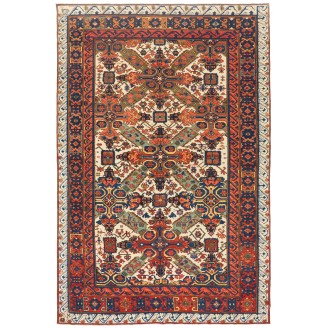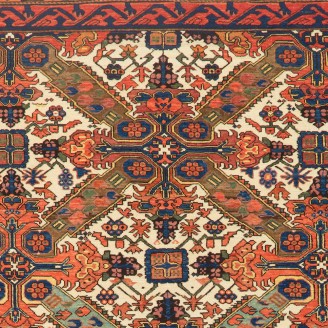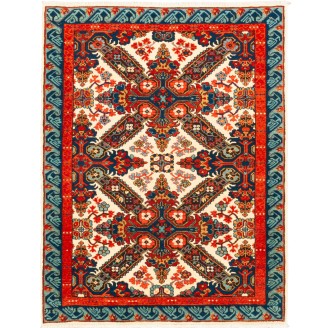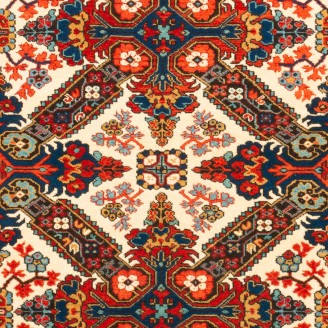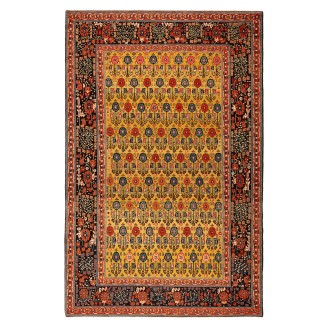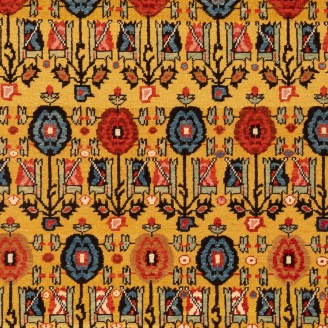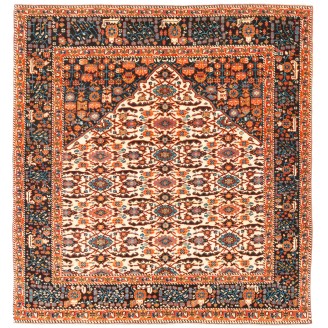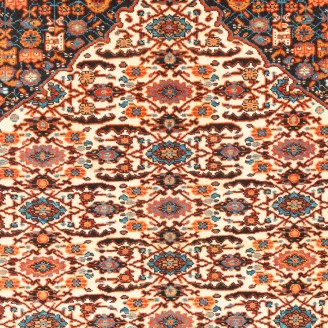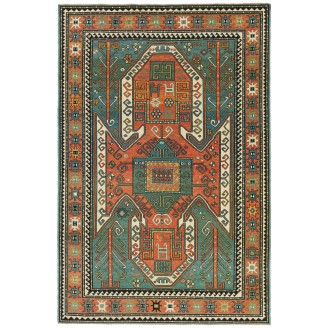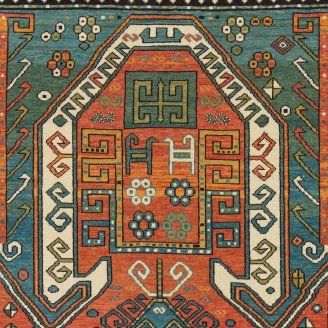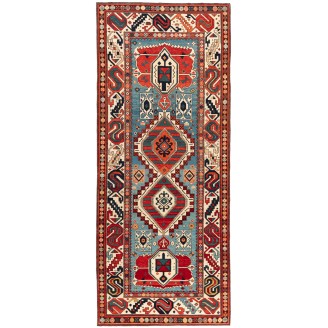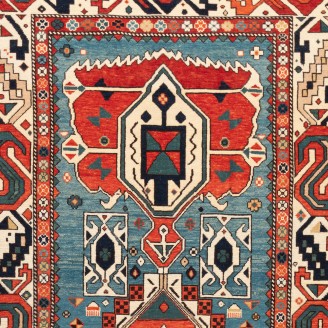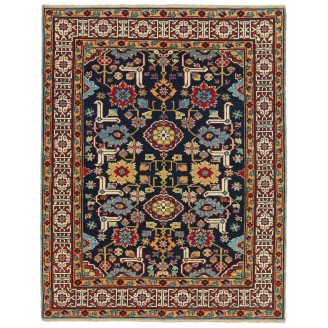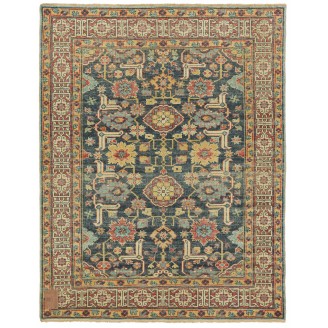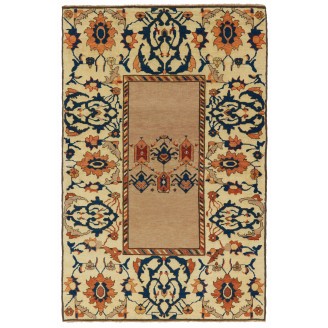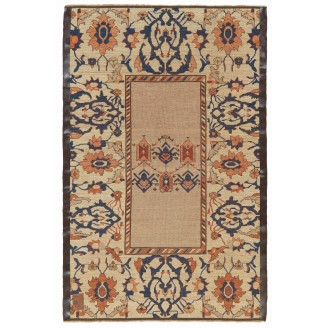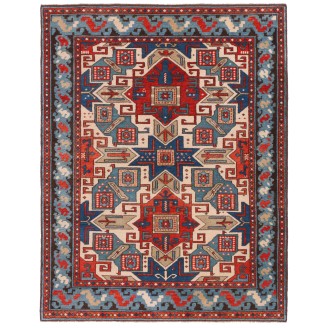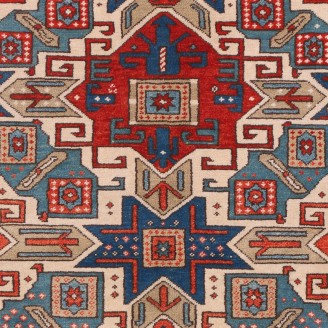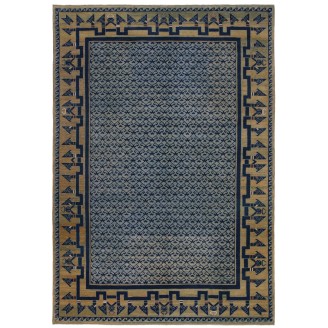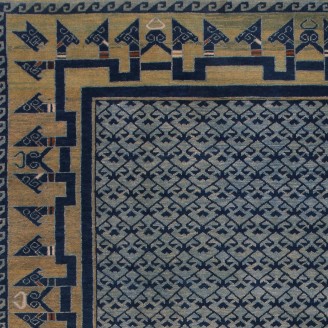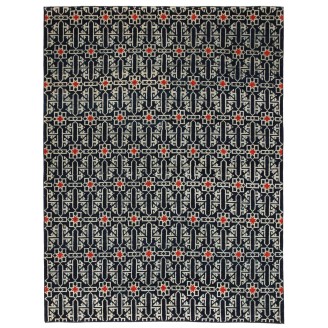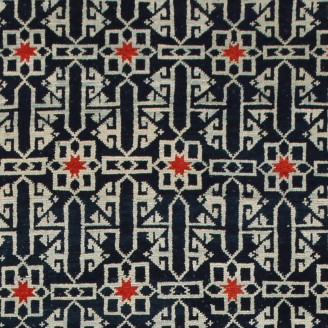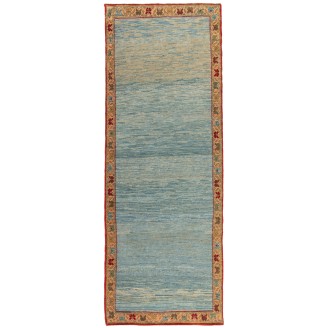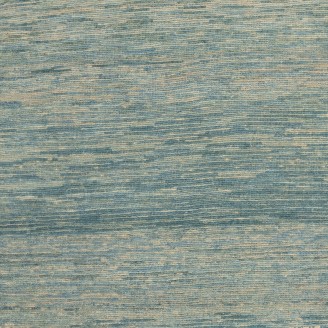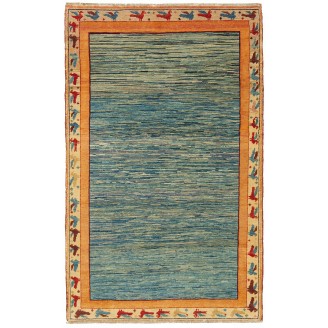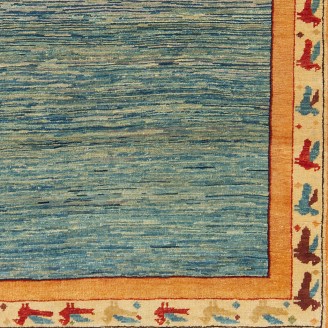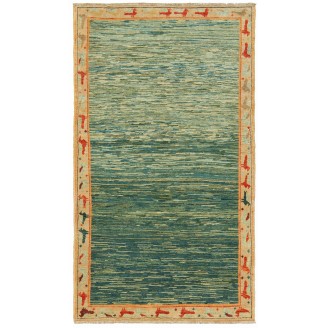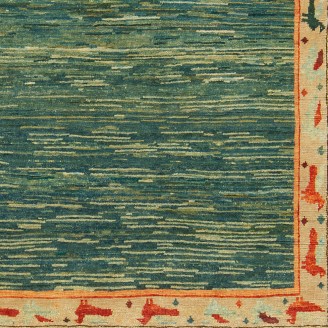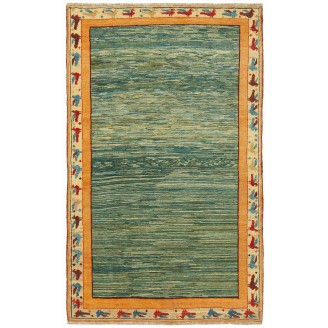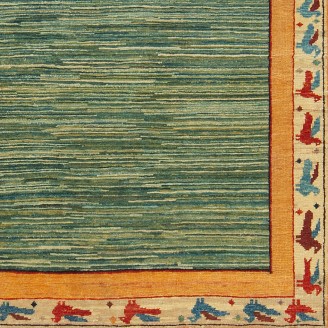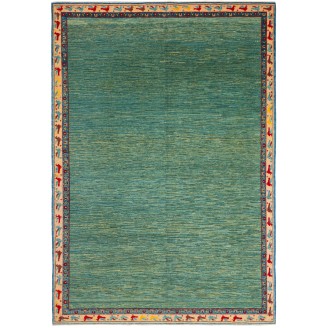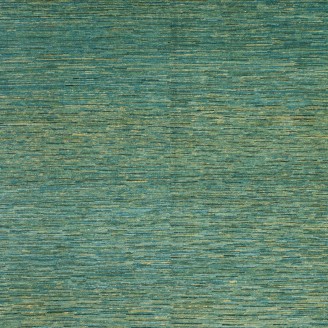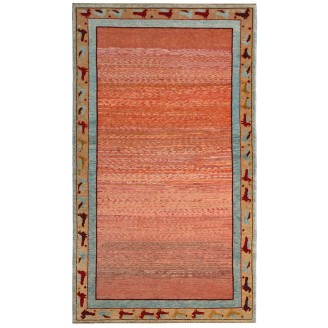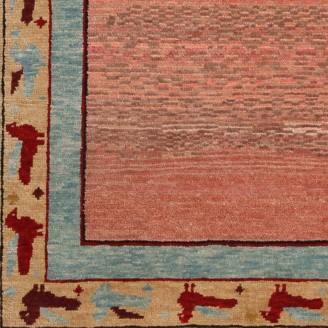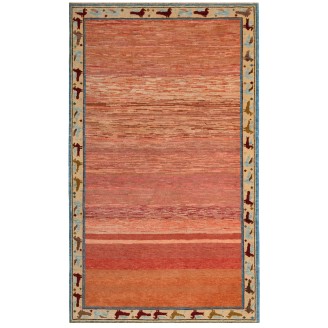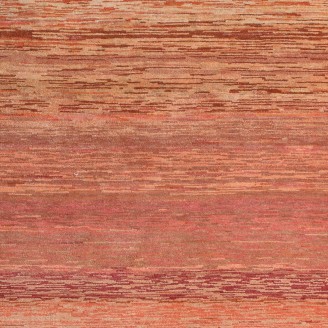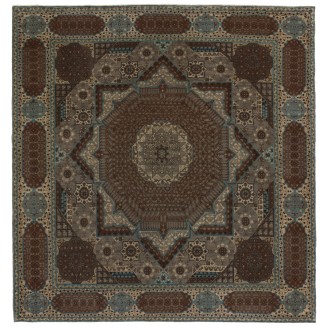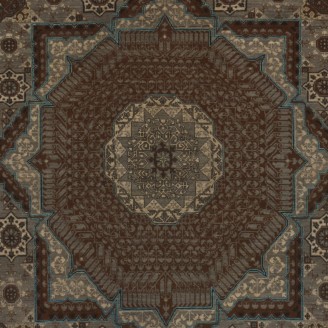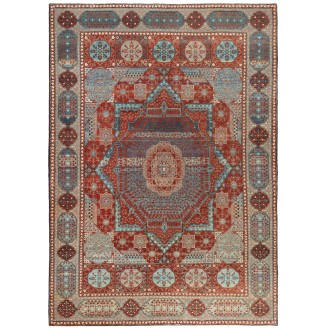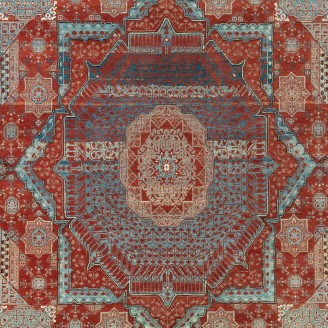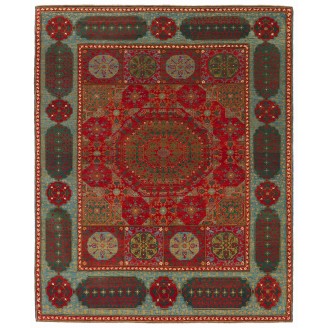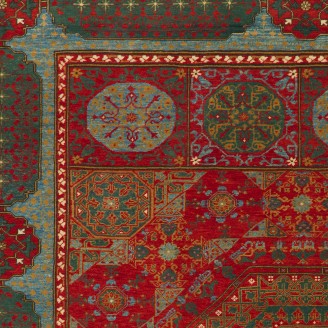Model: ART00607
Dimensions: 5'9" X 8'8"(177cm x 266cm)
The source of the rug comes from the book Tapis du Caucase - Rugs of the Caucasus, Ian Bennett & Aziz Bassoul, The Nicholas Sursock Museum, Beirut, Lebanon 2003, nr.90 and Oriental Rugs Volume 1 Caucasian, Ian Bennett, Oriental Textile Press, Aberdeen 1993, pg.376 and Ca..
Price:
$8,520
Ex Tax:$8,520
Model: ART00294
Dimensions: 3'9" X 4'11"(115cm x 150cm)
The source of the rug comes from the book Tapis du Caucase - Rugs of the Caucasus, Ian Bennett & Aziz Bassoul, The Nicholas Sursock Museum, Beirut, Lebanon 2003, nr.90 and Oriental Rugs Volume 1 Caucasian, Ian Bennett, Oriental Textile Press, Aberdeen 1993, pg.376 and Caucasian Carpets, E. Gans-..
Price:
$2,800
Ex Tax:$2,800
Model: ART00244
Dimensions: 6'6" X 10'0"(200cm x 307cm)
The source of the rug comes from the book Antique Rugs of Kurdistan A Historical Legacy of Woven Art, James D. Burns, 2002 nr.28. This was an exclusive example of offset rows of flowers designed 18th-century rug from Senna, Eastern Kurdistan area. This example is special because the flowers are well..
Price:
$14,300
Ex Tax:$14,300
Model: ART00290
Dimensions: 3'9" X 4'0"(115cm x 123cm)
The source of the rug comes from the book Antique Rugs of Kurdistan A Historical Legacy of Woven Art, James D. Burns, 2002 nr.29. This white background rug is associated with bridal dowry weavings from Senna, Eastern Kurdistan area early 19th century. This example is special because of its prayer ar..
Price:
$2,600
Ex Tax:$2,600
Model: ART00467
Dimensions: 6'2" X 9'3"(188cm x 283cm)
The source of the rug comes from the book Tapis du Caucase - Rugs of the Caucasus, Ian Bennett & Aziz Bassoul, The Nicholas Sursock Museum, Beirut, Lebanon 2003, nr.7 and Oriental Rugs Volume 1 Caucasian, Ian Bennett, Oriental Textile Press, Aberdeen 1993, nr.17 and Caucasian Carpets, E. Gans-Re..
Price:
$5,500
Ex Tax:$5,500
Model: ART00026
Dimensions: 4'2" X 9'11"(128cm x 303cm)
The source of the rug comes from the book Oriental Rugs Volume 1 Caucasian, Ian Bennett, Oriental Textile Press, Aberdeen 1993, nr.256. This is a hexagon columns rug from the late 19th century, Shirvan region, Caucasus area. This represents a well-known type of Shirvan carpet composition which has ..
Price:
$6,800
Ex Tax:$6,800
Model: ART00748
Dimensions: 3'9" X 4'9"(116cm x 146cm)
Introducing the exquisite Shirvan Rug (Model: ART00748) from Ararat Rugs—a true testament to the rich tapestry of Caucasian artistry. Handcrafted with precision in Diyarbakir, Turkey, this rug encapsulates the essence of traditional Shirvan design, making it a coveted piece for collectors and interi..
Price:
$5,100
Ex Tax:$5,100
Model: ART00673
Dimensions: 5'8" X 3'9"(175cm x 116cm)
The source of the rug comes from the book Antique Rugs of Kurdistan A Historical Legacy of Woven Art, James D. Burns, 2002 nr.9. This rug is presumably made by Kurds of the Ahl-i-Haqq (Yarsani) region, a sect of the 'Cult of Angels', attributed to the village of Kandula in Southern Kurdistan, s..
Price:
$3,865
Ex Tax:$3,865
Model: ART00369
Dimensions: 4'5" X 5'7"(136cm x 172cm)
The source of the rug comes from the book Orient Star - A Carpet Collection, E. Heinrich Kirchheim, Hali Publications Ltd, 1993 nr.2. This is the best-known example of a Star Kazaks rug from the Mid 19th century from the Central Caucasus area. Star Kazak rugs are considered to be the most desirable ..
Price:
$2,800
Ex Tax:$2,800
Model: ART00389
Dimensions: 6'8" X 9'5"(204cm x 288cm)
The source of the carpet comes from the book Orient Stars Collection, Anatolian Tribal Rugs 1050-1750, Michael Franses, Hali Publications Ltd, 2021 fig.21. This 13th-century carpet is from probably the Konya region, central Anatolia, circa 1200-1300 (C 1290-1420). It is exhibited at the Museum of Tu..
Price:
$6,200
Ex Tax:$6,200
Model: ART00291
Dimensions: 5'10" X 7'9"(178cm x 237cm)
The source of the carpet comes from the book Orient Stars Collection, Anatolian Tribal Rugs 1050-1750, Michael Franses, Hali Publications Ltd, 2021 fig.23. This 13th-century carpet is from probably the Konya region, central Anatolia, circa 1200-1300 (C 1290-1420). It is exhibited at the Museum of Tu..
Price:
$5,100
Ex Tax:$5,100
Model: ART00229
Dimensions: 2'7" X 6'11"(79cm x 211cm)
This unique design rug is interpreted by our designers with a mixture of Ararat Rugs’ soft blue tone natural dyed hand-spun yarns.Color summary: 10 colors in total, most used 4 colors are; Mixture of Our Blue Colors Russian Green 418 (Henna - Indigo) Melon 304 (Madder Root) Imperial Red 415 (..
Price:
$1,900
Ex Tax:$1,900
Model: ART00193
Dimensions: 3'2" X 5'2"(97cm x 158cm)
This unique design rug is interpreted by our designers with a mixture of Ararat Rugs’ soft blue tone natural dyed hand-spun yarns.Color summary: 11 colors in total, most used 4 colors are; Mix of Blue Yarns Congo Pink 306 (Madder Root) Burlywood 135 (Spurge - Madder Root) Dusty Turquoise 340 ..
Price:
$1,760
Ex Tax:$1,760
Model: ART00194
Dimensions: 3'2" X 5'6"(98cm x 170cm)
This unique design rug is interpreted by our designers with a mixture of Ararat Rugs' soft green tone natural dyed hand-spun yarns.Color summary: 11 colors in total, most used 4 colors are; Mixture of Green Yarns Ochre 73 (Madder Root) Ginger Church 12 (Spurge - Madder Root) Dusty Turquoise 340..
Price:
$1,900
Ex Tax:$1,900
Model: ART00196
Dimensions: 3'2" X 5'3"(98cm x 161cm)
The design of the rug is interpreted by our designers with a mixture of Ararat Rug's soft green tone natural dyed hand-spun yarns.Color summary: 11 colors in total, most used 4 colors are;Mix of Green YarnsBurlywood 135 (Spurge - Madder Root) Ochre 73 (Madder Root)Turquoise 330 (Spurge - Madder Ro..
Price:
$1,800
Ex Tax:$1,800
Model: ART00202
Dimensions: 6'7" X 9'4"(201cm x 286cm)
This unique design rug is interpreted by our designers with a mixture of Ararat Rugs' soft green tone natural dyed hand-spun yarns.Color summary: 11 colors in total, most used 4 colors are; Mixture of Our Green Colors Burlywood 135 (Spurge - Madder Root) Mixture of Our Blue Colors Dark Brown 3..
Price:
$7,400
Ex Tax:$7,400
Model: ART00197
Dimensions: 3'2" X 5'6"(99cm x 170cm)
This unique design rug is interpreted by our designers with a mixture of Ararat Rugs’ soft tone natural dyed hand-spun yarns.Color summary: 10 colors in total, most used 4 colors are; Mixture of Our Pink Colors Dusty Turquoise 340 (Spurge - Madder Root - Indigo - Walnut Husk) Burlywood 135 (Spu..
Price:
$1,900
Ex Tax:$1,900
Model: ART00198
Dimensions: 3'3" X 5'5"(100cm x 167cm)
This unique design rug is interpreted by our designers with a mixture of Ararat Rugs’ soft tone natural dyed hand-spun yarns.Color summary: 11 colors in total, most used 4 colors are; Mixture of Our Pink ColorsGinger Church 12 (Spurge - Madder Root)Dusty Turquoise 340 (Spurge - Madder Root - Indigo..
Price:
$1,900
Ex Tax:$1,900
Model: ART00373
Dimensions: 7'9" X 8'0"(237cm x 246cm)
The source of carpet comes from the book How to Read - Islamic Carpets, Walter B. Denny, The Metropolitan Museum of Art, New York 2014 fig.61,62. The five-star-medallion carpet was designed in the early 16th century by Mamluk Sultane of Cairo, Egypt. It is exhibited at The Metropolitan Museum of Art..
Price:
$13,700
Ex Tax:$13,700
Model: ART00374
Dimensions: 6'8" X 9'4"(205cm x 285cm)
The source of carpet comes from the book How to Read - Islamic Carpets, Walter B. Denny, The Metropolitan Museum of Art, New York 2014 fig.61,62. The five-star-medallion carpet was designed in the early 16th century by Mamluk Sultane of Cairo, Egypt. It is exhibited at The Metropolitan Museum of Art..
Price:
$11,500
Ex Tax:$11,500
Model: ART00700
Dimensions: 7'8" X 6'3"(234cm x 192cm)
The source of carpet comes from the book How to Read - Islamic Carpets, Walter B. Denny, The Metropolitan Museum of Art, New York 2014 fig.61,62. The five-star-medallion carpet was designed in the early 16th century by Mamluk Sultane of Cairo, Egypt. It is exhibited at The Metropolitan Museum o..
Price:
$8,900
Ex Tax:$8,900
